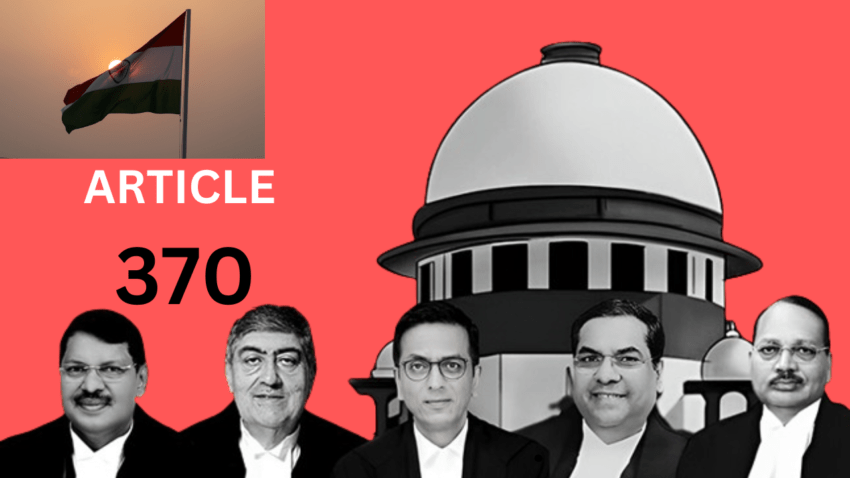
Supreme Court Validates Constitutional Adjustment of Article 370, Upholding its Temporary Nature
In a landmark decision today, the Supreme Court affirmed the temporary and transitional essence of Article 370. This decision follows a chain of appeals contesting the actions of the Narendra Modi government, notably the division of Jammu and Kashmir into two Union Territories back in August 2019.
The court, in its ruling, tackled the critical issue of Jammu and Kashmir’s sovereignty upon integration into the Union of India. It decisively held that there is no retention of any aspect of sovereignty, be it external or internal, following the region’s alignment with the Union.
Notably, it mandated the Election Commission to conduct assembly polls in Jammu and Kashmir before September 30, 2024, while also validating the creation of the Union Territory of Ladakh.
The court emphasized the validity of the president’s exercise of power in this matter, stating that it was not malafide. Furthermore, it clarified that the president’s authority to notify the alteration of Article 370 persists even after the dissolution of the constituent assembly of Jammu and Kashmir.
While leaving the question of whether the parliament can convert a state into a Union Territory open, the court expressed confidence in the solicitor general’s assurance that statehood would be restored. Additionally, the bench asserted that not every decision by the Centre can be challenged.
Chief Justice of India D.Y. Chandrachud, Sanjiv Khanna, Justices Sanjay Kishan Kaul, B.R. Gavai, and Surya Kant, formed the bench that delivered the judgment. The court, which had reserved its decision after a 16-day hearing on September 5, pronounced three judgments, with one authored by CJI Chandrachud, a concurring opinion by Justice Kaul, and Justice Khanna concurring with both.
The case involved challenges to the Jammu and Kashmir Reorganisation Act, unilaterally introduced by the Modi government on August 5, 2019. Chief Justice Chandrachud highlighted key issues, including the temporary nature of Article 370, the validity of substituting ‘constituent assembly’ with ‘legislative assembly’ under 370(1)(d), and the legitimacy of the Presidential Order in the absence of the J&K Constituent Assembly’s recommendation.
The court also scrutinized the validity of the Presidential Rule imposed in December 2018 and subsequent extensions. A pivotal consideration was the constitutionality of the J&K Reorganisation Act.
During the legislative process, the Union government imposed prolonged house arrest on Kashmir’s mainstream politicians and enforced an extensive internet shutdown, marking one of the longest periods in a territory.
In response to the verdict, opposition leaders, including Kapil Sibal and National Conference’s Omar Abdullah, expressed their views. Abdullah, who had been in house arrest for months, shared his reaction on social media.
Disappointed but not disheartened. The struggle will continue. It took the BJP decades to reach here. We are also prepared for the long haul. #WeShallOvercome #Article370
— Omar Abdullah (@OmarAbdullah) December 11, 2023
Courts
Some battles are fought to be lost
For history must record the uncomfortable facts for generations to know
The right and wrong of institutional actions will be debated for years to come
History alone is the final arbiter
of the moral compass of historic decisions— Kapil Sibal (@KapilSibal) December 11, 2023

Avinash Poojari is the owner of ComClone News website. He is an accomplished author specializing in the field of information technology. With a Master’s degree in Information Technology, Avinash hails from Mumbai. Passionate about researching breaking news, he is dedicated to providing accurate and up-to-date information to his readers.

